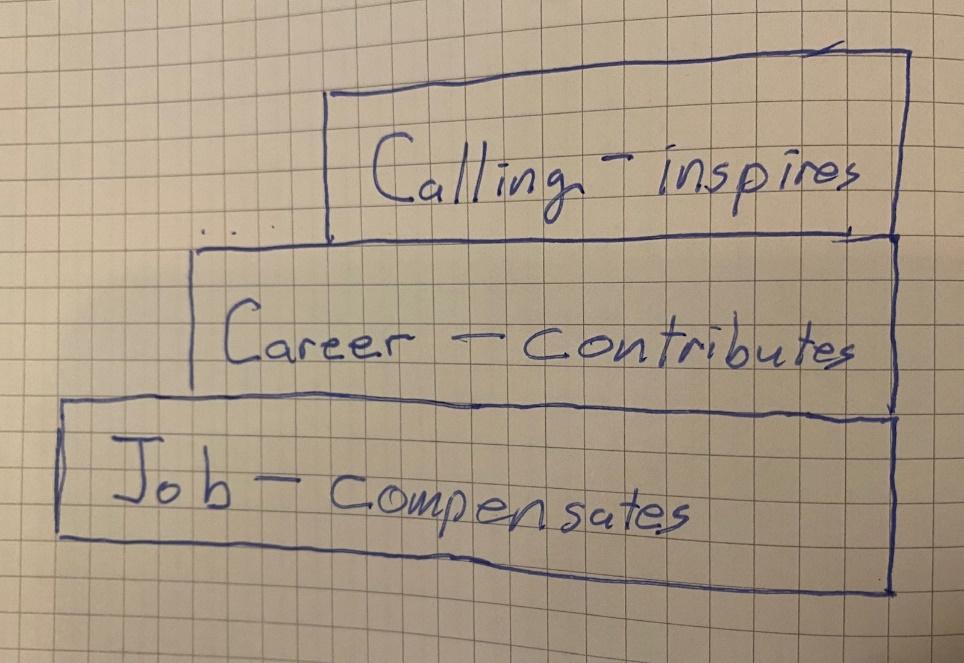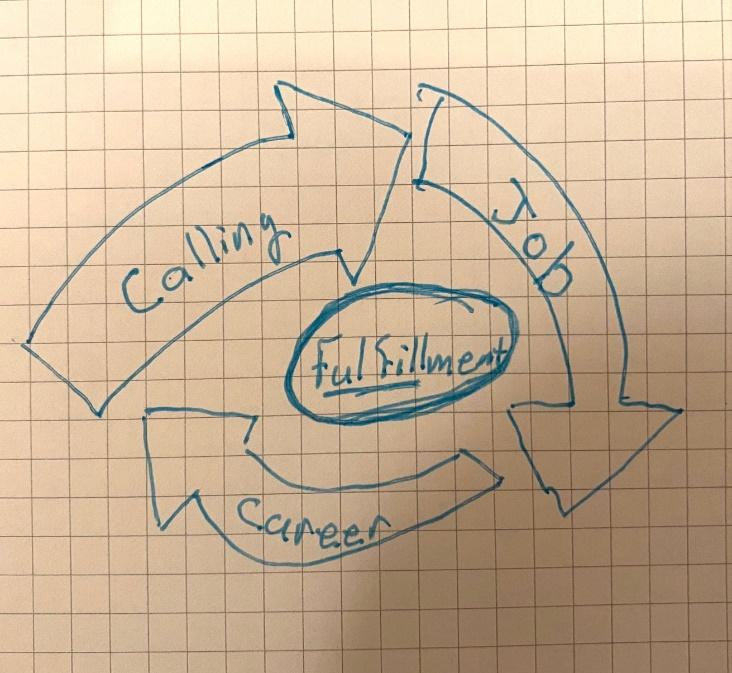
I saw early positions as “jobs.” For me, that was being a stock boy at K-Mart or a night auditor at the Ramada Inn, or even running a children’s theater–after earning my degree in theater.
It wasn’t until I earned my MBA and began teaching at NYU, and later Stanford, that my chosen career began to emerge: I help business leaders communicate effectively. I’ve also glimpsed my calling when I help others who struggle with life’s challenges, as I once did.
That makes my career trajectory look and sound pretty linear, just like the stairs I sketched during class. But that shrouds the circuitous nature of my journey. In fact, the more I considered the job/career/calling model, the more I realized all three can be present in the same line of work.
Let me illustrate. Last week I was blessed to teach those who were primarily developing new skills, those honing their already-strong skills, and those seeking mastery to disrupt entire industries. Admittedly, I have over 300 short assignments to grade for my USC masters’ students. I taught workshops to senior leaders in journalism, aspiring LGBTQ leaders in a variety of firms, and a group of data scientists, via zoom, at an offsite in Jakarta.
Yet the week was bookended by launching the communication component of the One Mind Accelerator, designed to supercharge Mental Health startups for faster breakthroughs. I conducted a “get to know you session” for the 11 teams on Monday and then reviewed and critiqued their initial fundraising pitches on Friday.
I share all this to illustrate my point. My part-time work at USC is, quite frankly, a job. While I enjoy my students immensely and strive to help them understand strategic corporate communications, it’s also a transaction. They attend class and do assignments; I teach class and grade assignments.
Similarly, my workshops on storytelling, executive presence, and communicating with mastery represent my career. I’ve built my expertise for over two decades at some pretty remarkable schools and written a book on how to speak with conviction and write for impact. My career is about helping leaders tell the story only they can tell.
But my calling, as one who has before struggled with depression and suicide, is to do all I can to help those who need it most. Through the One Mind Accelerator I’m helping founders bring their innovations to market and impact far more people than I could ever do on my own. The image I now have in my journal shows how these distinctions appear in my own life, and perhaps in your own.

My job, career, and calling all circle around fulfilling work. So, I dropped my judgment about jobs and careers. They are not merely “way stations” on the journey to finding a calling. They can work in concert with our calling allowing us to have a fulfilling portfolio of endeavors that work together for a purposeful life. This intersection of job, career, and calling brings not just purpose to my work, but fulfillment to all that I do.
If you’re interested in delving into topics like this in your own life, without hesitation I urge you to register for the Living and Working on Purpose Course beginning on March 17. If you find yourself in a career or life transition, I recommend Navigating Midlife Transitions, which was my first experience of the magic and wisdom offered through the Modern Elder Academy. This series begins in late May.
JD Schramm, Ed.D., lives in Marin County with his husband the Rev. Ken Daigle where together they are raising three kids. His TED talk, Break the Silence for Suicide Attempt Survivors, has more than 2 million views. You can explore his job, career and calling by visiting www.jdschramm.com. He regularly publishes a free newsletter, Communication Matters, on substack and welcomes you to subscribe.